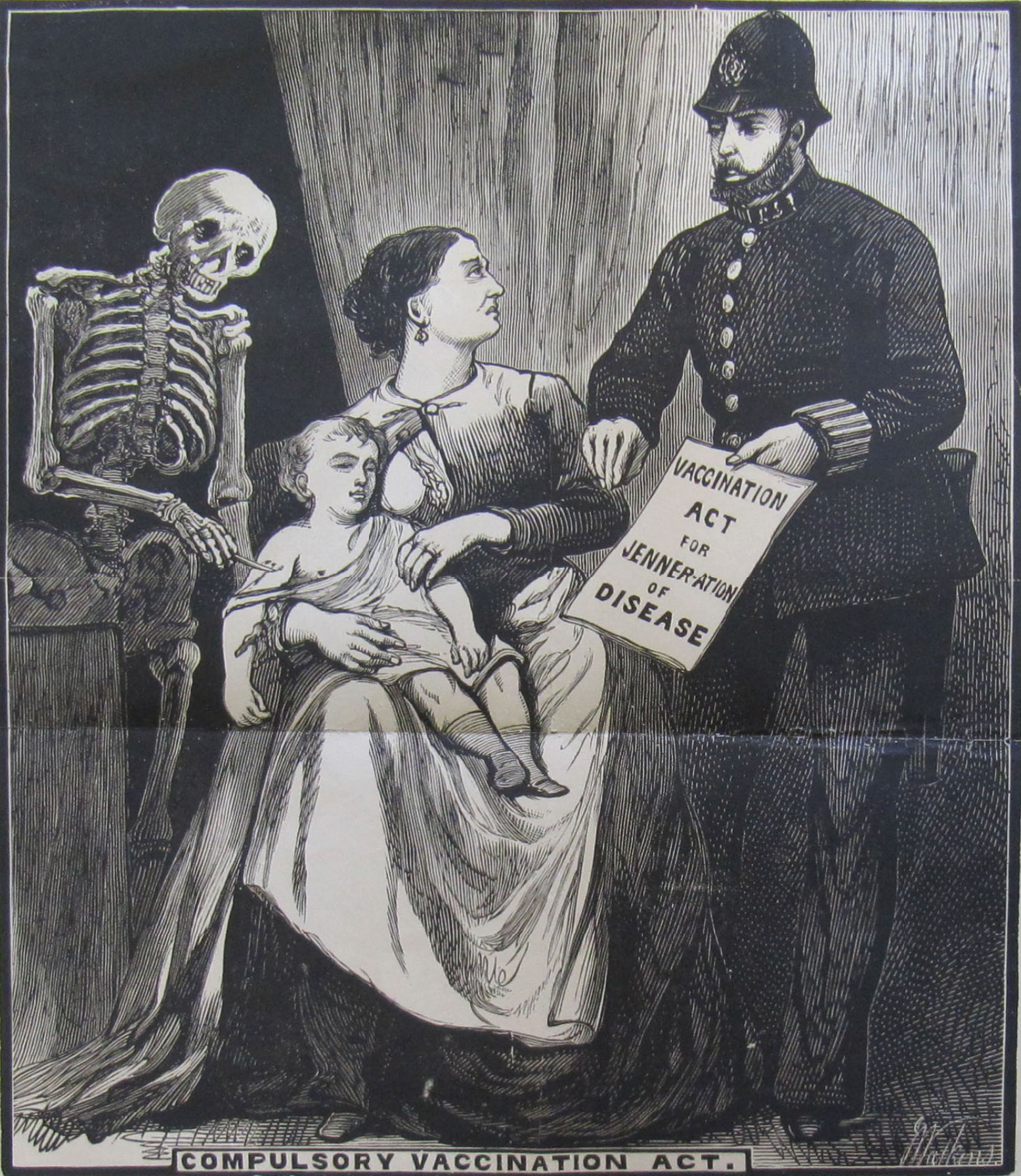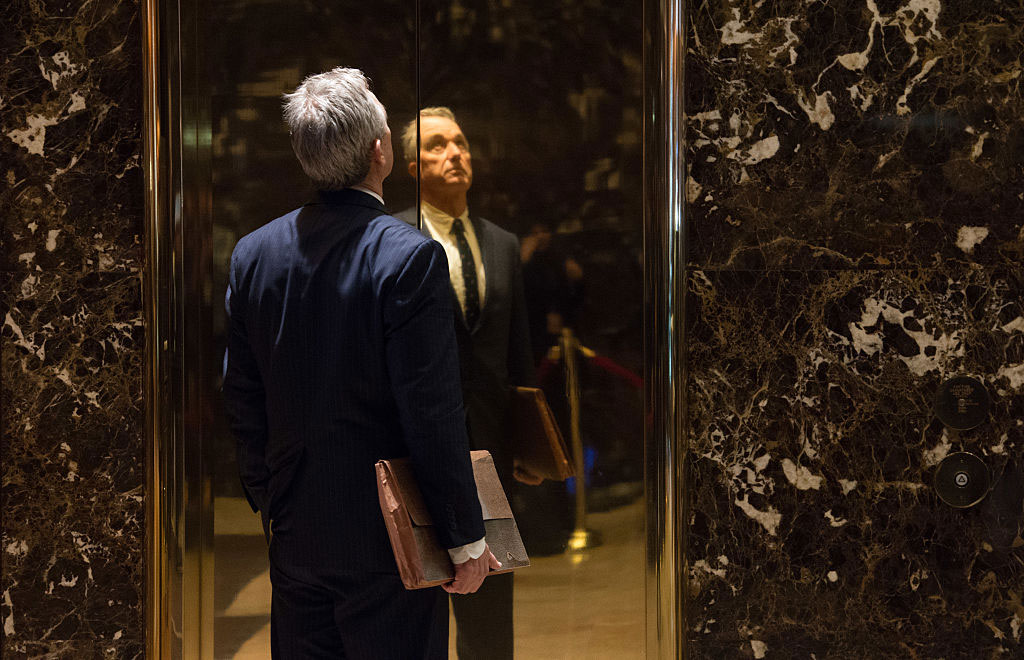Measles is a severe virus than can result in high fever, diarrhea, pneumonia, deafness, brain swelling, and death. It is very hardy and therefore wildly contagious; it can survive in the air for up to two hours after an infected person has sneezed or coughed. Among those who aren’t immune, nine out of ten people who are exposed to measles will contract the virus. It is one of the leading causes of childhood death worldwide—and it is a growing threat to the United States.
In 2014, the US Centers for Disease Control recorded twenty-three separate outbreaks of measles in the United States, involving 668 individual cases—the highest number in twenty years and more than the previous five years combined. Many of these cases were contracted by children whose parents had refused to vaccinate them, out of a fear that doing so would cause developmental problems. And now in 2017 we have President Donald Trump, a man who is not only the most prominent and media-savvy fear-monger in the English-speaking world but also a dedicated, unabashed, very loud purveyor of myths about the dangers of vaccines.
Trump has been fixated for years on a discredited link between childhood vaccines and autism. As recently as Tuesday, during a White House meeting with Secretary of Education Betsy DeVos and a group of educators, Trump launched into rambling remarks on the subject, drawing directly on the claims of the anti-vaccination movement: “So what’s going on with autism? When you look at the tremendous increase, it’s really—it’s such an incredible—it’s really a horrible thing to watch, the tremendous amount of increase. Do you have any idea?” There is in fact no evidence to support the claim that we are in the midst of an autism epidemic, let alone to connect autism to vaccines.
The stakes of Trump’s allegiance to anti-vaccination canards are huge. The CDC declared in 2000 that measles had been “eliminated,” meaning that it was no longer endemic to the United States. After that point, any cases that occurred were carried in from outside the country. Outbreaks still happened, but they were minor and restricted to small geographic areas. This changed in 2014. The most serious of the measles outbreaks that year began in Disneyland, in southern California, and quickly radiated outward, north to Oregon, Washington, and Canada, east to Arizona, Utah, Colorado, and Nebraska, and south to Mexico. By the time the outbreak ran its full course, at least 111 people had contracted the illness, half of them children.
What caused this sudden burst of outbreaks? Since measles is no longer indigenous to the US, they must have been started by someone who had recently traveled to, or was visiting from, another country. The Disneyland outbreak, epidemiologists think, originated in the Philippines. But source is different from transmission. When infectious-disease specialists at Emory University analyzed the records of US measles infections between 2000 and 2015, they found that the main reason the virus broke out was “vaccine refusal.” To provide a bulwark against a measles epidemic—to establish what is known as “herd immunity”—90 to 95 percent of a population must be rendered immune. Of the nearly one thousand cases for which the researchers had good data, nearly six hundred were unvaccinated and more than four hundred had sought and received nonmedical exemptions from vaccination.
Skepticism about vaccines is as old as vaccination itself. But contemporary vaccine refusal has its roots in 1998. That was the year that Andrew Wakefield, a British gastroenterologist, first announced a link between the live measles vaccine and autistic symptoms in young children. Wakefield’s report, originally published in Lancet, has been totally discredited. In 2010, Lancet issued a full retraction, calling the report “utterly false.” The General Medical Council, the British government’s medical licensing body, has declared Wakefield himself “unethical” and “dishonest,” and stripped him of his license. Nevertheless, his claims took hold and gained an eager following. Wakefield has continued to rail against vaccines. In the United States, he has been joined in his crusade by a series of media-savvy figures—celebrities, activists, and parents—who make alarming and conspiratorial allegations about the toxicity and overuse of childhood vaccines.
Public-health officials work hard to counter these allegations and tamp down fears. But their efforts don’t necessarily convince parents who encounter anti-vaccination messages and become, despite the literally mortal risk it poses, too scared to properly immunize their children. The fact of the matter is, the damage that can be done by even a single vocal anti-vaccination spokesperson is enormous. After Wakefield came on the scene, vaccination rates in Great Britain plummeted, and cases of measles soared. About 87 percent of pediatricians in the US have had a parent in their practice refuse a vaccine. Fear is more communicable than any virus.
Advertisement
Throughout his public career, Trump has proffered so many falsehoods and conspiracy theories—global climate change as a Chinese hoax; fraud in the general-election rolls; birtherism—that the idle observer might easily have missed his stance on vaccines. There is, however, an extensive and disquieting record. That record begins, as best as I have been able to tell, nearly ten years ago, when Trump hosted a fundraiser at Mar-a-Lago, his club in Palm Beach, for the organization Autism Speaks. After the event, Trump met with reporters and said that when he was growing up, in the 1950s, “autism wasn’t really a factor. And now all of a sudden, it’s an epidemic. Everybody has their theory. My theory, and I study it because I have young children, my theory is the shots. [We’re] giving these massive injections at one time, and I really think it does something to the children.” He went on: “When a little baby that weights twenty or thirty pounds gets pumped with ten or twenty shots at one time, with one injection that’s a giant injection, I personally think that has something to do with it.”
Trump has frequently promoted his views on Twitter, in a number of his characteristic modes: brash certainty (“Massive combined inoculations to small children is the cause for big increase in autism…”), cartoonish storytelling (“Healthy young child goes to doctor, gets pumped with massive shot of many vaccines, doesn’t feel good and changes—AUTISM. Many such cases!”), shameless slander (“I am being proven right about massive vaccinations—the doctors lied”).
It is at the very least wearying to have to refute these claims. Diagnoses of autism have indeed increased dramatically in the past thirty years. But there is not and never has been an autism “epidemic.” Nearly every reputable social scientist who has examined the data has concluded that the rise in diagnoses has mainly to do with the use of a “broader autism phenotype”—that is, we have progressively and radically expanded our understanding of what “autism” means. No child receives “ten or twenty” shots at a time. If a pediatrician is adhering to the CDC’s Recommended Immunization Schedule, as most do, then the most shots a child will receive in a single doctor’s visit is five. Usually it is lower. These shots are not even remotely “massive.” Most contain less than one milliliter of fluid. That’s four thousandths of a cup.
But now that he is vested with all the powers of the chief executive, Trump’s ignorance and exaggerations could have far-reaching consequences. Since the late 1990s, anti-vaccination activists have sought allies in positions of high political power. They have been largely unsuccessful. In Trump, however, they have an obvious, even an enthusiastic, champion. In November, it was reported that Trump met over the summer with Wakefield and three other anti-vaccination activists. The activists gave Trump a copy of Vaxxed, a documentary Wakefield produced and directed, and pleaded with him to support their cause. They say he pledged to do so.
Then, in January, ten days before his inauguration, Trump met with Robert F. Kennedy Jr. at Trump Tower. Though he has no medical or scientific training, Kennedy, an environmental lawyer and the son of the late US senator, is a prominent vaccine critic. On the basis that vaccines are profitable to drug makers, he has alleged a vast pharma-funded governmental conspiracy to cover up a link between autism and thimerosal, a vaccine preservative that contains trace amounts of mercury. Kennedy has told reporters that Trump asked him to chair a commission on “vaccine safety and scientific integrity.”
In fact, a presidential commission would do little if anything to change actual vaccine policy. Trump’s bureaucratic power is limited: it is the states and not the federal government that decide what shots a child must have to enroll in daycare or school. Trump can, if he chooses, push Congress to change or overturn certain federal vaccine programs. He can appoint a like-minded CDC director. He can affect funding. But his real power as president is his ability to amplify and broadcast skepticism and fear—to sow widespread doubt about the credibility of scientific fact.
As of now, most Americans do not share Wakefield’s, Kennedy’s, or Trump’s paranoid views. A survey published this month by the Pew Research Center found that some 82 percent of Americans support requiring all students in public schools to receive the combined vaccine for measles, mumps, and rubella. In the realm of infectious disease, however, “most” isn’t adequate for full immunity, and there remain pockets of resistance. Rates of vaccination in affluent areas such as Orange County, where the Disneyland outbreak began, are significantly lower than average. The Pew study found that African Americans are particularly skeptical about the safety of vaccines. So, too, are younger parents. More than 40 percent of parents of children under the age of four believe that the risk of side effects from routine vaccinations are medium or high.
Advertisement
The danger we face—the grave danger—is that Trump’s support for the anti-vaccination position will expand these pockets of resistance. Children will get sick and die, needlessly and avoidably. The evidence is clear: vaccines are safe. They are also necessary. The facts are the facts, nonpartisan and empirical, and scientists will continue to espouse them. But Trump is Trump, heedless and stubborn in his ignorance. The health of our children is in his tweeting hands.




